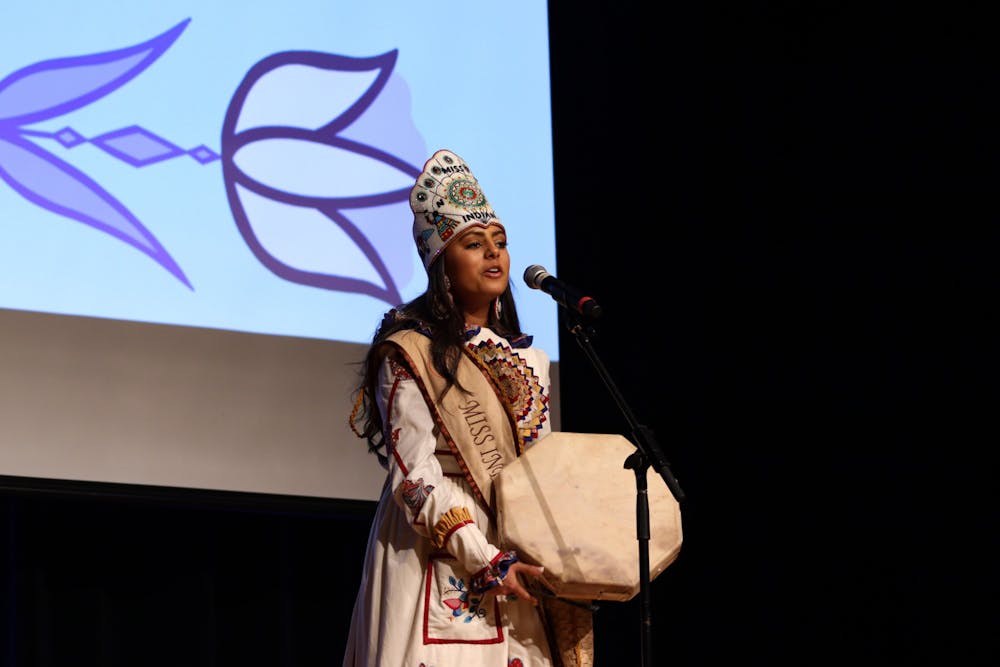Banquet style tables filled the Great Hall last Thursday as community attendees enjoyed a meal and performances from students and artists during the Carolina Indian Circle's annual culture showcase.
The CIC has been organizing these showcases since 2015, but hasn’t been able to host in-person events for the past two years because of the pandemic.
This year, the event was led by CIC Culture Co-chairpersons Evynn Richardson and Jalyn Oxendine.
Oxendine, a first-year and a member of the Tuscarora and Lumbee tribes, described the content and importance of the showcase event.
“Whether it’s dancing, storytelling, spoken word — there’s a lot that goes on within our culture," she said. "Bringing it out to showcase it for other Native people on campus, so we can be able to get together and enjoy this for ourselves, and also for non-Native people who want to come and get educated, or see some of the other stuff we do in the culture.”
The event began with an introduction and land acknowledgement presented by Shannon Ross, assistant director of scholarships and programming, a UNC alumna and a member of the Lumbee tribe.
Last month, the University issued a proclamation that recognized the second Monday in October as Indigenous Peoples’ Day. Though the proclamation also recognized that UNC was built on the land of the Occaneechi, Shakori, Eno and Sissipahaw people, an official acknowledgement has yet to be received.
After Thursday's showcase, Richardson and Oxendine blessed the food, and the performances began.
“It’s been the first showcase we’ve had since COVID,” said Richardson, who is a first-year and member of the Haliwa-Saponi tribe and Nansemond Nation. "And not having one for the past two years, I’m just excited for everyone to showcase what they’ve worked on and what’s important to them pertaining to their indigeneity.”



